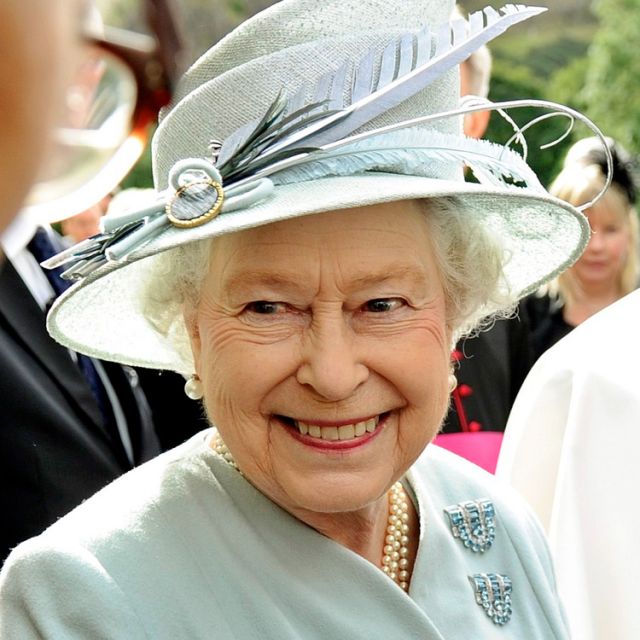It was providential, for Feb. 6 marked 60 years since the young Princess Elizabeth, then only 25 years old, became Queen upon the death of her father, King George VI. The biblical scene of the great king, Solomon, surrounded by all of the children of Israel in Jerusalem, offering sacrifices beyond number to God is impressive — an enormous number engaged in one of the great episodes of biblical worship. King Solomon not only co-ordinates or facilitates this great oblation; in a sense he makes it possible as the king. And thus we are taught something important about kingship.
The king rules over his kingdom, not as a delegate of his people, but rather as their embodiment. He serves as a focal point of unity for the whole, in which all are united precisely in their common fealty to him. As the embodiment of that people, he then acts in their name. At his best, the king acts as the people for the good of the people. This is the heart of Solomon’s act of common worship, where he makes the people present in his person and leads them in doing what is the best thing they can do, namely the worship of God.
This lofty vision of biblical kingship, which serves as the ideal of the Christian sovereign, often falls short in reality. History is not short of kings abusing their power, acting against the people for their own private interests. Both Solomon, and his father David, illustrate too the failures of kingship. It is a massive risk to invest in one person — even one anointed and consecrated — the embodiment of the nation.
Years ago, when in the seminary in Rome, I lived mostly with Americans. I had on my desk a marvellous photograph of the Queen visiting Pope John Paul II. My American friends made jokes about it. The teasing stopped when I inquired as to where they kept the photographs of the Holy Father with their own head of state. Of course there were none, few being desirous of Bill Clinton’s visage on their desk. When investing the dignity of state in a person, Slick Willie and his successors leave much to be desired.
As Elizabeth II marks 60 years on the throne, Canadians are grateful that our Queen has served so well in rapidly changing times and that she has embodied in her person those virtues that we aspire to live. Those virtues, 60 years on, are rather more evident now, tested by long years, than when she was only 25, flying back from Kenya to be greeted by her first prime minister, Sir Winston Churchill. The embodiment of great historical continuities, of nations, of cultures, of people, not in parchments but in persons, is an ancient intuition about the right order of things. We glimpse that in Solomon.
Sometimes the person fails to embody what she ought. In our sovereign lady, Elizabeth, we praise God for 60 years of faithful service in embodying those broad and sturdy values upon which our nation was built. The Queen knows something of this ancient intuition about the importance of persons in our common life, properly ordered. She knows it from her Christian faith, which, by coronation oath, she has sworn to uphold.
“Although we are capable of great acts of kindness, history teaches us that we sometimes need saving from ourselves — from our recklessness or our greed,” the Queen said in her Christmas message for 2011. “God sent into the world a unique person — neither a philosopher nor a general (important though they are) — but a Saviour, with the power to forgive. Forgiveness lies at the heart of the Christian faith. It can heal broken families, it can restore friendships and it can reconcile divided communities. It is in forgiveness that we feel the power of God’s love. ... It is my prayer that on this Christmas day we might all find room in our lives for the message of the angels and for the love of God through Christ our Lord.”
God save the Queen!
God save our Queen!
By Fr. Raymond J. de SouzaIn one of those happy liturgical coincidences — or better, providences — Feb. 6 brought the following reading from the First Book of Kings at Mass:
“The elders of Israel and all the leaders of the tribes, the princes in the ancestral houses of the children of Israel, came to King Solomon in Jerusalem, to bring up the ark of the Lord’s covenant from the City of David, which is Zion. All the people of Israel assembled before King Solomon during the festival in the month of Ethanim (the seventh month). When all the elders of Israel had arrived, the priests took up the ark; they carried the ark of the Lord and the meeting tent with all the sacred vessels that were in the tent. (The priests and Levites carried them.) King Solomon and the entire community of Israel present for the occasion sacrificed before the ark sheep and oxen too many to number or count.”
Please support The Catholic Register
Unlike many media companies, The Catholic Register has never charged readers for access to the news and information on our website. We want to keep our award-winning journalism as widely available as possible. But we need your help.
For more than 125 years, The Register has been a trusted source of faith-based journalism. By making even a small donation you help ensure our future as an important voice in the Catholic Church. If you support the mission of Catholic journalism, please donate today. Thank you.
DONATE

